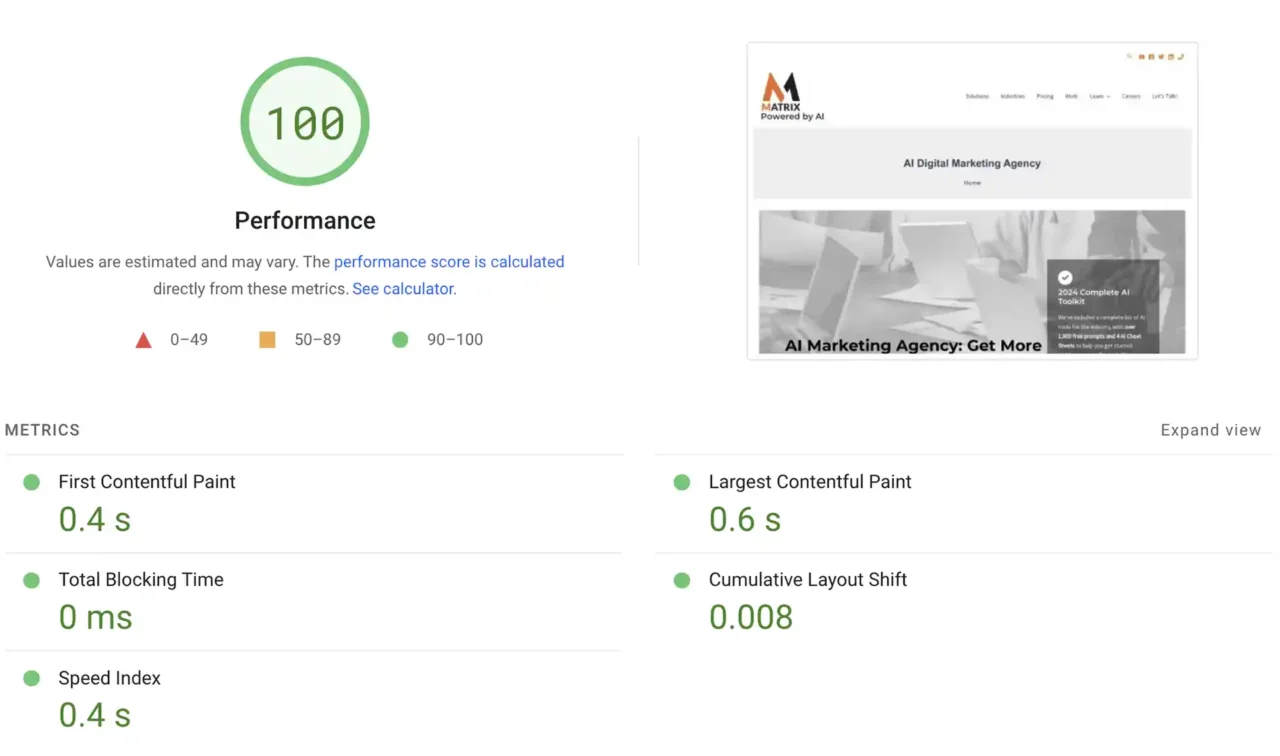SEO Mind Games: Decode Searcher Bias for Content Success
SEO Mind Games: Decode Searcher Bias for Content Success
Today’s Chief Marketing Officers (CMOs) continually deal with the challenge of optimizing search engine marketing.
You may find that despite optimizing keywords and mapping your search strategy, your search return on investment (ROI) needs to hit the anticipated level. With all the resources funneled into it, you need to see organic search traffic translate into measurable conversions.
Failing to maximize search ROI can lead to more significant consequences if this issue remains unresolved. Poor search ROI may signify that potential customers can’t find you and are instead directed to your competitors.
The resulting loss in conversions and customer opportunities can impact revenue and growth. A sufficient search ROI reveals a disconnect in understanding and reaching your target audience, which can risk the overall brand experience and reputation. Top 7 Challenges Facing SEO Managers in 2025
Applications of AI in Marketing
Generative AI: Tools like ChatGPT, Gemini, and OrchestraAI are being utilized for content creation, with 42% of marketers employing AI for keyword research and 39% for social media and email marketing. Learn More.
Picture a CMO at a leading e-commerce company. Despite allocating generous resources to develop a formidable search strategy, lower-than-expected search ROI was a constant problem. As a broader consequence, the company started experiencing wavering online sales, even when its sector witnessed substantial growth.
Competitors easily outpaced them on search engines, meaning lost customer opportunities and declining market share.
Transitioning from poor search ROI to an optimally performing marketing operation requires a transformational strategy. This strategy needs to align your search efforts with the customer journey, apply an analytical approach to keyword optimization, and leverage the latest technology for search engine marketing.
Our company specializes in providing exactly this kind of marketing operations strategy. We work intimately with your team to understand your challenges and tailor a search marketing plan accordingly.
By leveraging advanced analytics, we can accurately identify gaps in your current search strategy and improve keyword optimization. Furthermore, our industry-leading technological solutions ensure your brand is always at the top of potential customers’ minds.
Drive Better Results with a Complimentary Marketing Audit
Take the guesswork out of your marketing strategy. Our Free Marketing Audit is designed to analyze your current efforts, identify gaps, and uncover growth opportunities. Whether you’re struggling with low ROI, limited engagement, or unclear targeting, we’ll provide actionable insights to help you achieve your business goals.

Take that first step in reclaiming your search ROI and transform organic search traffic into tangible conversions. Join us today, and let’s work closely together to achieve transformational growth through search engine marketing.
Stop letting poor search ROI hold back your organization’s potential.
Let us help you be found easily, understood quickly, and chosen consistently.
SEO Mind Games: Decode Searcher Bias for Content Success

Chief Marketing Officers (CMOs) continuously explore new strategies for improved search ROI. One crucial factor often overlooked is the role of searcher bias in SEO strategy.
To achieve content success, it’s essential to understand and decode these biases. In this article, we’ll delve into what searcher bias is and how you can use this knowledge to improve your search ROI.
Understanding Searcher Bias
Searcher bias is a cognitive bias that influences internet users’ choices when interacting with search engines. This bias can heavily affect click-through rates, user engagement, and search ROI.
There are various forms of searcher bias. One of the most common is the ‘ranking bias,’ where users tend to click on the first few results, assuming they are the most relevant.
Another type is ‘brand bias,’ where users are more likely to click on results from well-known brands. Aiming for a 0.9 or higher click-through rate becomes significantly more challenging when searcher bias comes into play. Automated Keyword Discovery: A Game Changer for SEO
Semantic Relevance Search and Context Search and how it impacts SEO strategy:
Semantic Relevance Search:
- The Core Idea: Semantic relevance search goes beyond simply matching keywords. It seeks to understand the meaning and intent behind a user’s query.
- How it Works: It leverages natural language processing (NLP) and machine learning to analyze relationships between words, phrases, and concepts. It considers synonyms, related terms, and even user search history to deliver results that align with the broader topic or idea a user is exploring.
- Example: A user searches for “best-running shoes for marathon training.” Semantic search understands this isn’t just about the words “running shoes” but the intent to find shoes specifically suited for long-distance running. It might include results for “long-distance running shoes” or “best-cushioned shoes for marathons,” even if those words weren’t in the query.
Context Search:
- The Core Idea: Context search goes beyond semantic search by considering the specific circumstances of the user’s search.
- How it Works: It factors in elements like the user’s location, device, time of day, and past search behavior to tailor results to their immediate needs.
- Example: If you search for “coffee shops near me,” context search will use your current location to provide results for coffee shops in your vicinity rather than a generic list of popular cafes. SEO Pricing Guide: How Much Does SEO Cost In 2025?
Why This Matters for SEO Strategy:
- User Experience: Both semantic relevance and context search dramatically improve user experience. They deliver more relevant results, reducing users’ time sifting through irrelevant pages. This keeps users engaged with your website longer and increases the likelihood of conversion.
- Voice Search Optimization: With the rise of voice assistants and smart speakers, search queries are becoming increasingly conversational. Semantic and context searches are crucial for understanding and responding effectively to these natural language queries.
- Future-Proofing: As search engines evolve, their ability to understand user intent and context will only become more sophisticated. By aligning your SEO strategy with these advancements, you ensure your website remains discoverable and competitive in the long run.
- Competitive Edge: Embracing semantic and context search gives you an advantage over competitors still relying on outdated keyword-matching tactics. By optimizing your content for meaning and relevance, you’ll rank higher in search results and attract more qualified traffic.
Implementing Your SEO Strategy:
- Content Optimization: Focus on creating comprehensive, high-quality content that addresses the broader topics your audience is interested in. Use relevant keywords naturally, and include related terms and synonyms to signal the semantic relevance of your content.
- Technical SEO: Ensure your website is structured in a way that’s easily understood by search engine crawlers. Use structured data markup to provide additional context about your content.
- Local SEO: Optimize your website and online listings for local search if you have a physical location. Ensure your address, phone number, and hours of operation are consistent across all platforms.
- Monitor and Adapt: Regularly analyze your website’s performance in search results. Track which keywords drive traffic, and adjust your strategy as needed to stay ahead of the curve.
Let me know if you’d like a deeper dive into any of these areas!
Content That Converts: Transparent Pricing for Maximum ROI
Explore Matrix Marketing Group’s Flexible Pricing Plans for Premium Content and Marketing Solutions Tailored to Your Goals.
Decoding Searcher Bias
Understanding searcher bias is just the first step. The real challenge lies in decoding these biases and incorporating this knowledge into your SEO strategy. Here are a few ways to do this:
- Leverage Ranking Bias: Understanding the ranking bias can help you focus on achieving top search engine ranking. Invest in creating high-quality content and building high-authority backlinks to improve your search engine ranking.
- Build Brand Recognition: To leverage brand bias, you must establish your brand as trustworthy and reliable. This involves focusing on brand-building activities, both online and offline. Remember, a recognizable brand will likely attract clicks, even when not ranked first.
- Optimize Snippets: Your search snippet, which includes the title, URL, and meta description, is often the first user interaction with your content. Ensure that your snippet is attractive and informative to entice clicks.
- User Experience: A positive user experience can help override searcher bias. Ensure your website is user-friendly, easy to navigate, and provides valuable content.

Unlock Your Brand’s Full Potential with the Best Social Media Services
Engage. Inspire. Grow.
Are you ready to take your social media presence to the next level? Our comprehensive social media services are designed to help your brand connect with your audience, boost engagement, and drive measurable results. From strategy to execution, we’ve got you covered.
Searcher Bias and Content Success
Understanding and decoding searcher bias allows you to tailor your SEO strategy for improved content success.
Consider searcher bias when creating and optimizing content to increase your click-through rate and improve user engagement. Aim for a 0.9 or higher click-through rate to improve your search ROI significantly.
Searcher bias is a critical factor in SEO strategy that CMOs must consider. Understanding, decoding, and leveraging these biases can significantly improve your search ROI.
Whether achieving that elusive 0.9 click-through rate or driving user engagement, decoding searcher bias can be the game-changer in your SEO strategy. Remember, SEO is not just about algorithms and keywords; it’s also a mind game that requires understanding the users behind the searches.
The Superiority of Matrix Marketing Group’s Solutions
For CMOs grappling with poor search ROI, Matrix Marketing Group, an AI digital marketing agency, presents a game-changing solution. The company leverages artificial intelligence to craft and implement efficient marketing operations strategies.
Matrix Marketing Group understands the intricate web of factors that influence search ROI. The agency combines this understanding with advanced AI technology to analyze data, identify patterns, and provide actionable insights.
This data-driven approach allows for a more precise and effective marketing strategy, ensuring every effort improves search ROI.
Additionally, Matrix Marketing Group emphasizes adaptability and continuous improvement in its strategies.
Given the dynamic nature of search engine algorithms, consumer behavior, and competitive landscapes, this adaptability ensures that your marketing operations strategy remains effective.
Matrix Marketing Group also offers comprehensive solutions, tackling everything from SEO and content marketing to social media marketing and PPC advertising. This all-encompassing approach means you have a consistent, unified strategy working across all channels, improving ROI.
Conclusion
In conclusion, Matrix Marketing Group offers an advanced, comprehensive solution for CMOs facing challenges with search ROI. By leveraging AI technology and a data-driven approach, the agency can develop and implement a highly effective marketing operations strategy tailored to your needs.
To summarize, improving search ROI is a complex task that requires understanding various factors and adapting to changing circumstances.
With Matrix Marketing Group, you get a partner who understands these challenges and has the tools and expertise to tackle them head-on. Thus, partnering with Matrix Marketing Group is an investment in long-term success and significantly improved search ROI.

